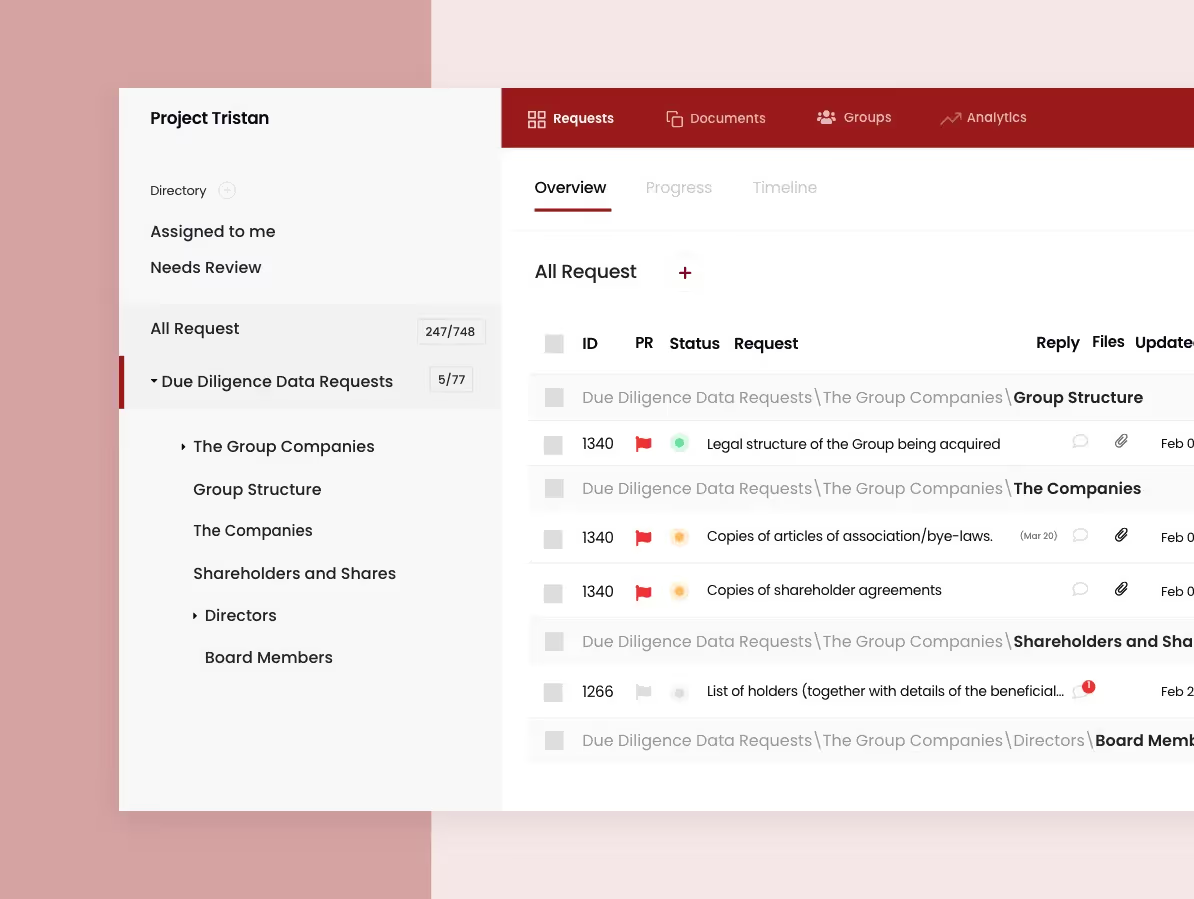Private Company Due Diligence Playbook
Reducing risks when acquiring a private company is achieved with a thorough due diligence process. Between HR, compliance, tax issues, contracts, IP, and more, it can feel hard to know where to start. Our due diligence template will help guide you through the process. Book a playbook demo to explore — schedule a call with us and we will reach out to help you get started.
- Tailored for private-company transactions
Built for non-public targets: this checklist guides your review of ownership, shareholder dynamics, reporting gaps and control-frameworks unique to private companies. - Small-cap risk & value lens
Focus on issues like owner-dependencies, minority rights, lack of audited financials and informal governance to surface hidden exposures and upside potential. - Collaborative-ready workflow
Invite your due-diligence, finance, legal and operations teams into one shared workspace—assign items, attach documents, comment in context and track status in real time. - Traceable audit trail
Link each question to its supporting document, capture version history and keep a transparent record that transitions smoothly into contract negotiations.
After completing your review, finalise the deal with the Business Acquisition Agreement Template, or advance into detailed ownership structuring using the Form of LOI-Asset Acquisition.





.png)
.png)
.png)
.svg)

.svg)
.avif)
